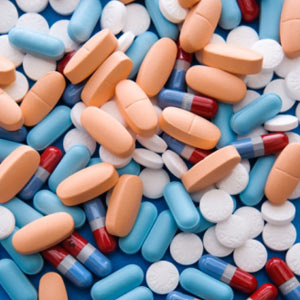Global drug security has been endangered by the coronavirus pandemic. The big players, and suppliers of Active Pharmaceutical Ingredients (API) and Key Starting Materials (KSM) for pharmaceuticals are India and China. Just recently, the Indian government restricted the export of about 26 Active Pharmaceutical Ingredients including the APIs for antibiotics, vitamins, and hormones to have sufficient quantities for use in India, during the period of the lockdown. China, on the other hand, had earlier stopped drug production completely during the early periods of the outbreak. Currently, many of their pharmaceutical production factories are back to operation. However, some are still functioning at a limited capacity because, a good number of their workers are still on isolation and quarantine, hence production is not yet at full scale. All of these have tremendously disrupted the production, supply, and distribution of pharmaceuticals around the world leading to a severe drug shortage.
The International Pharmaceutical Federation (FIP) defined drug shortage as: “A drug supply issue requiring a change. It impacts patient care and requires the use of an alternative agent.”
Also, many patients who come down with COVID-19 complications and are unable to breathe would need a ventilator to assist. In doing this, they need some drugs administered on them to either sedate or ease their pains before they can easily use the Ventilators. Notable examples of some drugs used include propofol and fentanyl. But, due to the rising need for ventilators, and the increasing use of these drugs on patients, a huge shortage in supply is inevitable. These shortages have been recorded in countries regarded as the world’s epicenters of the virus in recent times.
Also, patients with diabetes, cardiovascular diseases, high blood pressure, obesity, and cancers are at a higher risk of manifesting the complications of COVID-19 compared to healthy individuals without comorbidity. As a result of the gross shortage in production and supply of drugs due to the pandemic and the resultant lockdown, many of these individuals might not be able to procure and refill their daily routine drugs and as such may not be able to properly manage their conditions. Malaria, on the other hand, is predominately prevalent in the West African region, and a shortage in this class of drugs may portend another health challenge to the millions of Africans. Even as we celebrate the World’s Malaria Day, with the imminent shortage in global drug supply, counterfeiters will leverage on this lacuna and use it as a great opportunity to foster the production of counterfeit drugs at an alarming rate to match the demand. This may cause severe health consequences on the consumers of such products and might even lead to more death than the current COVID-19.
READ ALSO: Chloroquine remains World’s Biggest Hope Against COVID-19 – Norvatis CEO
This is, therefore, a global issue. In the wake of the pandemic, the government at all levels has graciously and proactively stepped up to the challenge by swiftly empowering many indigenous pharmaceutical companies with the needed funds to effectively produce and supply drugs with unhindered access to avoid increasing drug shortage, especially for essential items. More assistance and support in this regard is encouraging certified indigenous pharmaceutical companies and the regulatory agencies with the needed technologies, appropriate training and research support, increasing manpower, and enforcement capacity and also a collaboration with some multinational pharmaceutical companies will to a profound extent help in stemming the tide of drug shortage thereby improving and maintaining drug security both nationally, regionally and globally.
Abayomi is a pharmacist, a social commentator, a content creator, and a public health enthusiast based in Nigeria.

